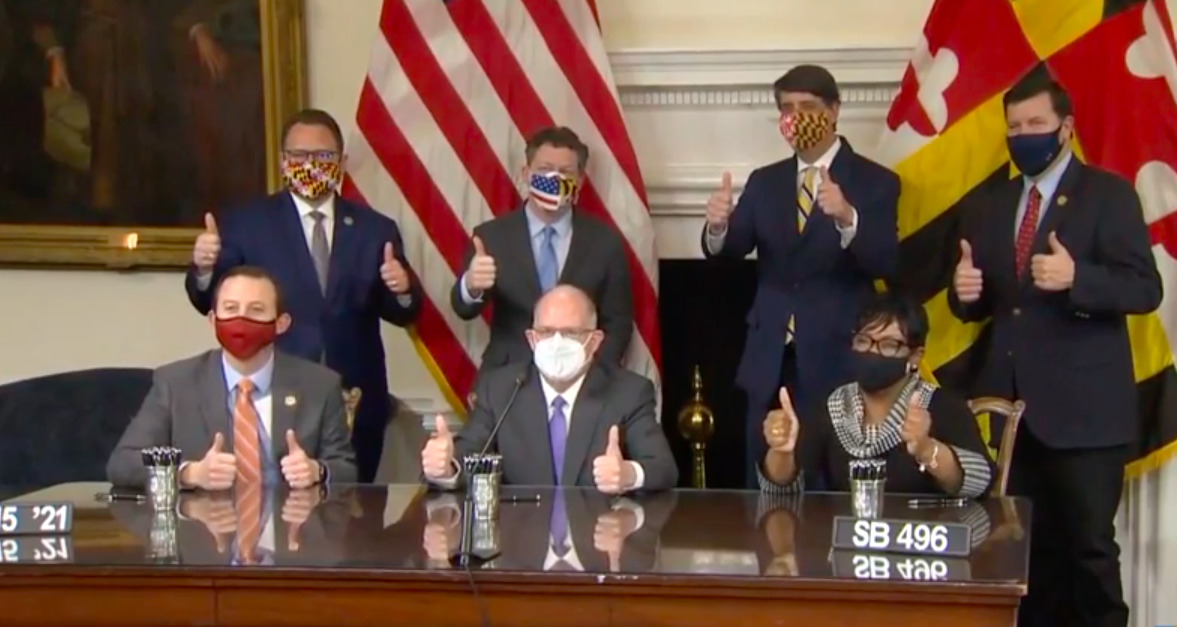ANNAPOLIS, Md. — Maryland Comptroller Peter Franchot, D, expects 98% of all relief payments to be processed and in eligible people’s bank accounts as early as Friday.
He said 266,985 electronic payments totaling $113.6 million and 148,972 paper checks totaling $61.7 million will be processed and sent to eligible recipients starting Tuesday as part of the recently passed RELIEF Act.
The RELIEF Act, or SB0496, which is emergency bipartisan legislation that was among the top legislative priorities for Gov. Larry Hogan, R, passed both chambers almost unanimously, and was signed into law Monday.
“It is almost unheard of for any major piece of legislation to pass in such a short period of time and with such universal bipartisan support,” Hogan said at the bill signing Monday.
The legislation provides more than $1 billion in stimulus and tax relief for 422,531 eligible Marylanders including low-income families, small businesses, and many of the unemployed.
The legislation specifically provides immediate stimulus payments of up to $500 and also repeals all state and local taxes on unemployment benefits.
The Comptroller’s office is responsible for releasing payments to recipients, and will be dispersing $1,000 grants to 32,000 Marylanders who are awaiting unemployment insurance adjudication, as well as disbursing loans and grants to approved businesses and nonprofits.
“This stimulus rollout looks relatively simple from my description. It isn’t,” Franchot said at a press conference Capital News Service viewed Tuesday. “It is a very complex process.”
Franchot emphasized the importance of balancing speed and efficiency of rolling out the stimulus while maintaining protection against fraud.
There are currently 6,574 eligible Marylanders, with payments totaling $2.7 million, who cannot yet receive their stimulus until they can provide an updated address or bank account to the Comptroller’s Office.
The Comptroller’s Office released a webpage designed to simplify the process that includes a “frequently asked questions” page, a portal to determine eligibility, as well as a place to check the status of your relief.
In a non-pandemic year, Franchot stated, the office receives over 800,000 calls during tax season, and although that is expected to rise greatly this year, he commits to having a helpful voice on the other end of each call this tax season.
“The worst thing that we can do is communicate to people that, just like the unemployment issue and the vaccine situation, we are going to get up and say how great we are,” Franchot said. “No. I want people to answer the phone, and we need that.”
The Hogan Administration has been criticized by state Democrats for an uneven start and frustration, among people who qualify, in registering to get vaccinated.
The governor has pleaded for patience, citing a limited supply of vaccines from the federal government, and widespread distribution among local health departments, hospitals, pharmacies and others.
Franchot, who announced in December he will be running for Governor in 2022, also has repeatedly criticized Hogan and the RELIEF Act as not doing enough and has advocated for a $2,000 one-time payment to hold Marylanders over until the federal stimulus arrives.
“We are the richest state in the richest country in the history of the world,” Franchot said. “And we have the means in Maryland and the obligation to do more for our fellow Marylanders.”
“The $2,000 checks Franchot is talking about is not possible,” Hogan said at a press conference Jan 11th.
Franchot also stated during the press conference Tuesday that 86,000 tax-paying immigrant families in Maryland, who he said collectively paid over $100 million in state and local taxes last year alone, are being left out of the relief.
Because Hogan and the Democrat-controlled Legislature used the Earned Income Tax Credit program to define the eligibility criteria of the legislation, those who do not have a Social Security number and use an Individual Taxpayer Identification Number to file taxes are ineligible for the relief, according to Franchot.
After an amendment to include immigrant workers in the relief bill failed to be passed last week, Democratic lawmakers have promised to introduce an additional bill that would allow non-citizens with low incomes to receive the earned income tax credit benefit at the state level.
Democratic lawmakers initially dropped the amendment after Hogan said last Thursday at a press conference that it would threaten the entirety of his legislation.
“I can assure you that any attempts at distractions or delay will prevent this desperately needed relief from getting out to Marylanders,” Hogan said and he suggested that lawmakers create separate legislation.
Colorado and California have previously extended earned income tax credit benefits to taxpayers who use individual taxpayer identification numbers, and if the new legislation is successful, Maryland would join them, the Baltimore Sun reported.

